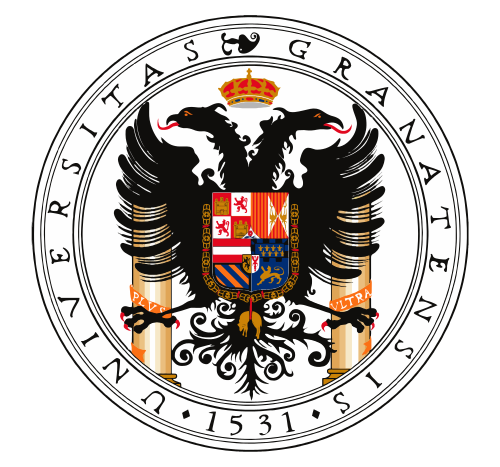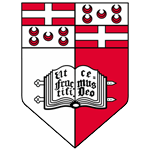Universidad Autónoma de Madrid (UAM) - Spain; S Region coordinator

The Universidad Autónoma de Madrid (UAM) is a state university offering graduate and postgraduate degrees in many different fields. It is a young university — founded in 1968— but has already achieved an outstanding international reputation for its high-quality teaching and research and work in the areas of sustainability, environmental management and education against climate change. The UAM is a modern and democratic institution in which decisions are taken with the participation of all the members of the community, and which is characterized by its strong social commitment and participation in society.
Read more: Universidad Autónoma de Madrid (UAM) - Spain; S Region coordinator
Boğaziçi University, Sustainable Development and Cleaner Production Center (BU) - Turkey
 Sustainable Development and Cleaner Production Center (SDCPC) at Bogazici University (BU) is coordinated by full time academic personnel of the University. The Center promotes sustainable development in the community through the use of interdisciplinary knowledge and experience, innovative technology transfer in close cooperation with related stakeholders.
Sustainable Development and Cleaner Production Center (SDCPC) at Bogazici University (BU) is coordinated by full time academic personnel of the University. The Center promotes sustainable development in the community through the use of interdisciplinary knowledge and experience, innovative technology transfer in close cooperation with related stakeholders.
Read more: Boğaziçi University, Sustainable Development and Cleaner Production Center (BU) - Turkey
Frederick University (FU) - Cyprus
![]() Frederick University (FU) is one of the four recognised private Universities operating in the Republic of Cyprus. It is an energetic and vibrant university, enjoying respect and recognition both nationally and internationally. It offers a broad range of academic programmes of study and has a strong focus on academic research, being one of the leading research organisations in the country.
Frederick University (FU) is one of the four recognised private Universities operating in the Republic of Cyprus. It is an energetic and vibrant university, enjoying respect and recognition both nationally and internationally. It offers a broad range of academic programmes of study and has a strong focus on academic research, being one of the leading research organisations in the country.
Instituto Politécnico de Leiria (IPL) - Portugal
 The Polytechnic Institute of Leiria (IPL) is a public institution of higher education, at the service of society, dedicated to the production and diffusion of knowledge, creation, transmission and diffusion of culture, science, technology and arts, oriented research and experimental development. IPL has a traditionin working with the community in the area of sustainability and environmental management. It is extending its expertise in Education for Sustainability.
The Polytechnic Institute of Leiria (IPL) is a public institution of higher education, at the service of society, dedicated to the production and diffusion of knowledge, creation, transmission and diffusion of culture, science, technology and arts, oriented research and experimental development. IPL has a traditionin working with the community in the area of sustainability and environmental management. It is extending its expertise in Education for Sustainability.
Interuniversity Research Centre for Sustainable Development (CIRPS) - Italy
 The Interuniversity Research Centre on Sustainable Development (CIRPS) counts more than 300 professors, researchers and experts belonging to 11 Italian universities joining the Centre. Since 1988, it coordinates and participates in networks of excellence, research projects, and activities for local sustainable development (SD) and carries out Research, Education, Training and out-reach activities, as well as Technical-Scientific Services supply, through collaborations and agreements with Universities, Research Centres, Enterprises, national and international Institutions and NGOs.
The Interuniversity Research Centre on Sustainable Development (CIRPS) counts more than 300 professors, researchers and experts belonging to 11 Italian universities joining the Centre. Since 1988, it coordinates and participates in networks of excellence, research projects, and activities for local sustainable development (SD) and carries out Research, Education, Training and out-reach activities, as well as Technical-Scientific Services supply, through collaborations and agreements with Universities, Research Centres, Enterprises, national and international Institutions and NGOs.
Read more: Interuniversity Research Centre for Sustainable Development (CIRPS) - Italy
Mediterranean Information Office for Environment, Culture and Sustainable Development (MIO) - Greece
 MIO-ECSDE is a Federation of Mediterranean Environmental NGOs acting as technical and political platform for the promotion of sustainable development in the region. Since 1999 MIO-ECSDE promotes systematically Education for Sustainable Development (ESD) and particularly through its network of ESD educators entitled "MEdIES" (www.medies.net). MEDIES is an e-Network of educators (~ 3600) from all the Mediterranean countries launched in 2002 in Johannesburg World Summit.
MIO-ECSDE is a Federation of Mediterranean Environmental NGOs acting as technical and political platform for the promotion of sustainable development in the region. Since 1999 MIO-ECSDE promotes systematically Education for Sustainable Development (ESD) and particularly through its network of ESD educators entitled "MEdIES" (www.medies.net). MEDIES is an e-Network of educators (~ 3600) from all the Mediterranean countries launched in 2002 in Johannesburg World Summit.
National and Kapodistrian University of Athens (NKUA) - Greece
 The National and Kapodistrian University of Athens (NKUA) has 30 Faculties and three Interdepartmental Programmes. NKUA has a long lasting cooperation with Universities of Europe, the Balkans and beyond. The University comprises of more than 500 buildings and it has more than 150,000 students and a staff of more than 7,000. It has a capacity and expertise on aspects addressed in Environmental Studies & Education for Sustainable Development (ESD).
The National and Kapodistrian University of Athens (NKUA) has 30 Faculties and three Interdepartmental Programmes. NKUA has a long lasting cooperation with Universities of Europe, the Balkans and beyond. The University comprises of more than 500 buildings and it has more than 150,000 students and a staff of more than 7,000. It has a capacity and expertise on aspects addressed in Environmental Studies & Education for Sustainable Development (ESD).
Read more: National and Kapodistrian University of Athens (NKUA) - Greece
The University of Gibraltar
 The University of Gibraltar is a new higher education institution that opened its doors in September 2015. It is committed to the provision of quality teaching and learning, esteemed research and academic freedom. The University is underpinned by a flexible structure that can be responsive to social needs and an established network of partners that can support provision. Education for Sustainable Development underpins every aspect of this institution's work and contributes to its goal to become the Centre of Excellence in ESD for the region.
The University of Gibraltar is a new higher education institution that opened its doors in September 2015. It is committed to the provision of quality teaching and learning, esteemed research and academic freedom. The University is underpinned by a flexible structure that can be responsive to social needs and an established network of partners that can support provision. Education for Sustainable Development underpins every aspect of this institution's work and contributes to its goal to become the Centre of Excellence in ESD for the region.
Universidad de Granada (UGR) - Spain
 UGR was founded in 1531. As a classical university with around 70,000 students, 3,600 lecturers, 1,900 admin. and support staff, the UGR offers a wide range of courses at undergraduate and postgraduate level. Every year over 4,800 international graduate and postgraduate students choose the UGR to take full study programmes or via the approximately 800 network and bilateral exchange agreements in which the UGR is involved.
UGR was founded in 1531. As a classical university with around 70,000 students, 3,600 lecturers, 1,900 admin. and support staff, the UGR offers a wide range of courses at undergraduate and postgraduate level. Every year over 4,800 international graduate and postgraduate students choose the UGR to take full study programmes or via the approximately 800 network and bilateral exchange agreements in which the UGR is involved.
Universidad del Pais Vasco/Euskal Herriko Unibertsitatea (UPV) - Spain
 The University of the Basque Country (UPV/EHU) is a teaching and research institution officially founded in 1985, employing over 7,000 people throughout 31 faculties and schools geographically distributed in three campuses with over 50,000 undergraduate and postgraduate students. It is the only public university in the Basque Country, thus holding the responsibility to provide tertiary education both in Spanish and Basque to its society.
The University of the Basque Country (UPV/EHU) is a teaching and research institution officially founded in 1985, employing over 7,000 people throughout 31 faculties and schools geographically distributed in three campuses with over 50,000 undergraduate and postgraduate students. It is the only public university in the Basque Country, thus holding the responsibility to provide tertiary education both in Spanish and Basque to its society.
The University of the Basque Country has recently adopted a new strategic plan (2012) which places sustainability as a key organising principle.
Read more: Universidad del Pais Vasco/Euskal Herriko Unibertsitatea (UPV) - Spain
Universidade Católica Portuguesa (UCP) - Portugal

Catholic University of Portugal (CUP) was established in 1967 and it is recognized by the Portuguese State as a free, autonomous university institution of public utility that aims to combine academic excellence and education in human values. It delivers excellence teaching, training and research in several educational areas: Arts, Law, Bioethics, Biotechnology, Psychology, Economics, Health, Theology, among others.
Read more: Universidade Católica Portuguesa (UCP) - Portugal
Universidade de Aveiro (UA) - Portugal
 The University of Aveiro (UA) is a young university, founded in 1973, with over 15000 full-time students (graduate and postgraduate). The University has a strong research profile, a unique model of governance (16 Departments, 4 Polytechnic Schools and various training centers), acting as a regional network for education and training promoting strong links with the surrounding community and was a pioneer in launching degrees in new subject areas. UA is interested and engaged in integrating sustainable development into the curriculum with a focus on health sciences and medicine.
The University of Aveiro (UA) is a young university, founded in 1973, with over 15000 full-time students (graduate and postgraduate). The University has a strong research profile, a unique model of governance (16 Departments, 4 Polytechnic Schools and various training centers), acting as a regional network for education and training promoting strong links with the surrounding community and was a pioneer in launching degrees in new subject areas. UA is interested and engaged in integrating sustainable development into the curriculum with a focus on health sciences and medicine.
Universidade do Minho (UMI) - Portugal
 UMI is one of the so-called "New Universities" that changed the HE landscape in Portugal. Located in the Minho region, known for its significant economic activity and by the youth of its population, UMI is renowned for the quality of its teaching, the quality of its students, the public recognition given to its Alumni, and for its intervention and strong links with the local community and the surrounding region. UNI has a commitment to sustainable development as reflected in its core mission:
UMI is one of the so-called "New Universities" that changed the HE landscape in Portugal. Located in the Minho region, known for its significant economic activity and by the youth of its population, UMI is renowned for the quality of its teaching, the quality of its students, the public recognition given to its Alumni, and for its intervention and strong links with the local community and the surrounding region. UNI has a commitment to sustainable development as reflected in its core mission:
Università Degli Studi di Roma Tor Vergata (UNITOV) - Italy
 Tor Vergata University (UNITOV), established in 1981, is located in the south-eastern part of Rome in a 600 hectare campus far from the hectic city centre, which has allowed the university to expand and develop over the years. As one of the largest research based institutions in Italy, Tor Vergata University is an international centre for research and education and it is well known for scientific studies. In recent years, it has played an increasingly important role in the activity of technology transfer and cooperation with public and private organisations in various fields.
Tor Vergata University (UNITOV), established in 1981, is located in the south-eastern part of Rome in a 600 hectare campus far from the hectic city centre, which has allowed the university to expand and develop over the years. As one of the largest research based institutions in Italy, Tor Vergata University is an international centre for research and education and it is well known for scientific studies. In recent years, it has played an increasingly important role in the activity of technology transfer and cooperation with public and private organisations in various fields.
Read more: Università Degli Studi di Roma Tor Vergata (UNITOV) - Italy
Universita' ta' Malta (UOM) - Malta
 The University of Malta traces its origins to the founding of the Collegium Melitense by the Jesuits in 1592. The College was raised to University status by Grand Master Manoel Pinto de Fonseca in 1769. Situated at Msida, it is the highest teaching institution of the State by which it is mainly financed and is open to all those who have the requisite qualifications. The University has a long tradition in engaging in environmental education and teacher education in the area of sustainable development, and has been a catalyst across communities of practice in Malta.
The University of Malta traces its origins to the founding of the Collegium Melitense by the Jesuits in 1592. The College was raised to University status by Grand Master Manoel Pinto de Fonseca in 1769. Situated at Msida, it is the highest teaching institution of the State by which it is mainly financed and is open to all those who have the requisite qualifications. The University has a long tradition in engaging in environmental education and teacher education in the area of sustainable development, and has been a catalyst across communities of practice in Malta.
Universitat Autònoma de Barcelona (UAB) - Spain
 The Universitat Autònoma de Barcelona (UAB) is a public institution founded in 1968. Today it is at the head of Europe’s Higher Education system committed to the construction of the Europe of knowledge. Known both for its excellence in research as for its quality in teaching, the university is already a reference within the European community and Mediterranean area and has the recognition as Campus of International Excellence (CEI) with a plan based on alliances with surrounding R&D&I centres. The over 40,000 undergraduate and post-graduate students enrolled in the university are backed up by a team of 5,000 lecturers, researchers and administration and services staff.
The Universitat Autònoma de Barcelona (UAB) is a public institution founded in 1968. Today it is at the head of Europe’s Higher Education system committed to the construction of the Europe of knowledge. Known both for its excellence in research as for its quality in teaching, the university is already a reference within the European community and Mediterranean area and has the recognition as Campus of International Excellence (CEI) with a plan based on alliances with surrounding R&D&I centres. The over 40,000 undergraduate and post-graduate students enrolled in the university are backed up by a team of 5,000 lecturers, researchers and administration and services staff.
Universitat de Girona (UDG) - Spain
 The University of Girona (UDG) is a public institution devoted to excellence in teaching and research and to participating in the progress and development of society through the creation, transmission, dissemination and criticism of knowledge related to sciences, technology, humanities, social sciences and arts. It has around 13000 students and 2000 employees.
The University of Girona (UDG) is a public institution devoted to excellence in teaching and research and to participating in the progress and development of society through the creation, transmission, dissemination and criticism of knowledge related to sciences, technology, humanities, social sciences and arts. It has around 13000 students and 2000 employees.
University of Bergamo (UNIBG) - Italy
 The University of Bergamo is a public high education institution with an expanding expertise in Education for Sustainable Development (ESD) and behavioural studies. It currently consists of six faculties (Economics; Educational Studies; Engineering; Foreign Languages and Literatures; Humanities; Law), 14 three-year (level one) degree courses, 15 two-year (level two) degree courses, 3 two-year (level two) degree courses taught in English, and a single cycle second level degree (five-year) in Law.
The University of Bergamo is a public high education institution with an expanding expertise in Education for Sustainable Development (ESD) and behavioural studies. It currently consists of six faculties (Economics; Educational Studies; Engineering; Foreign Languages and Literatures; Humanities; Law), 14 three-year (level one) degree courses, 15 two-year (level two) degree courses, 3 two-year (level two) degree courses taught in English, and a single cycle second level degree (five-year) in Law.
University of Cyprus (UCY) - Cyprus
 The University of Cyprus is a public University, established in 1989. The Department of Education is a department with 35 faculty members who have expertise in environmental education and are interested in networking and learning in the area of sustainable development.
The University of Cyprus is a public University, established in 1989. The Department of Education is a department with 35 faculty members who have expertise in environmental education and are interested in networking and learning in the area of sustainable development.
University of Palermo (UNIPA) - Italy
 The Department of Psychology, University of Palermo, deal about 100 workers: teachers, researchers, PhD students and technical and administrative staff committed to improving and defusing sustainability knowledge across the curriculum.
The Department of Psychology, University of Palermo, deal about 100 workers: teachers, researchers, PhD students and technical and administrative staff committed to improving and defusing sustainability knowledge across the curriculum.
University of Siena (UNISI) - Italy
 The University of Siena is one of the oldest universities in Europe. Located in the heart of Tuscany Siena is a very friendly and safe city, well attuned to students and researchers needs.
The University of Siena is one of the oldest universities in Europe. Located in the heart of Tuscany Siena is a very friendly and safe city, well attuned to students and researchers needs.


